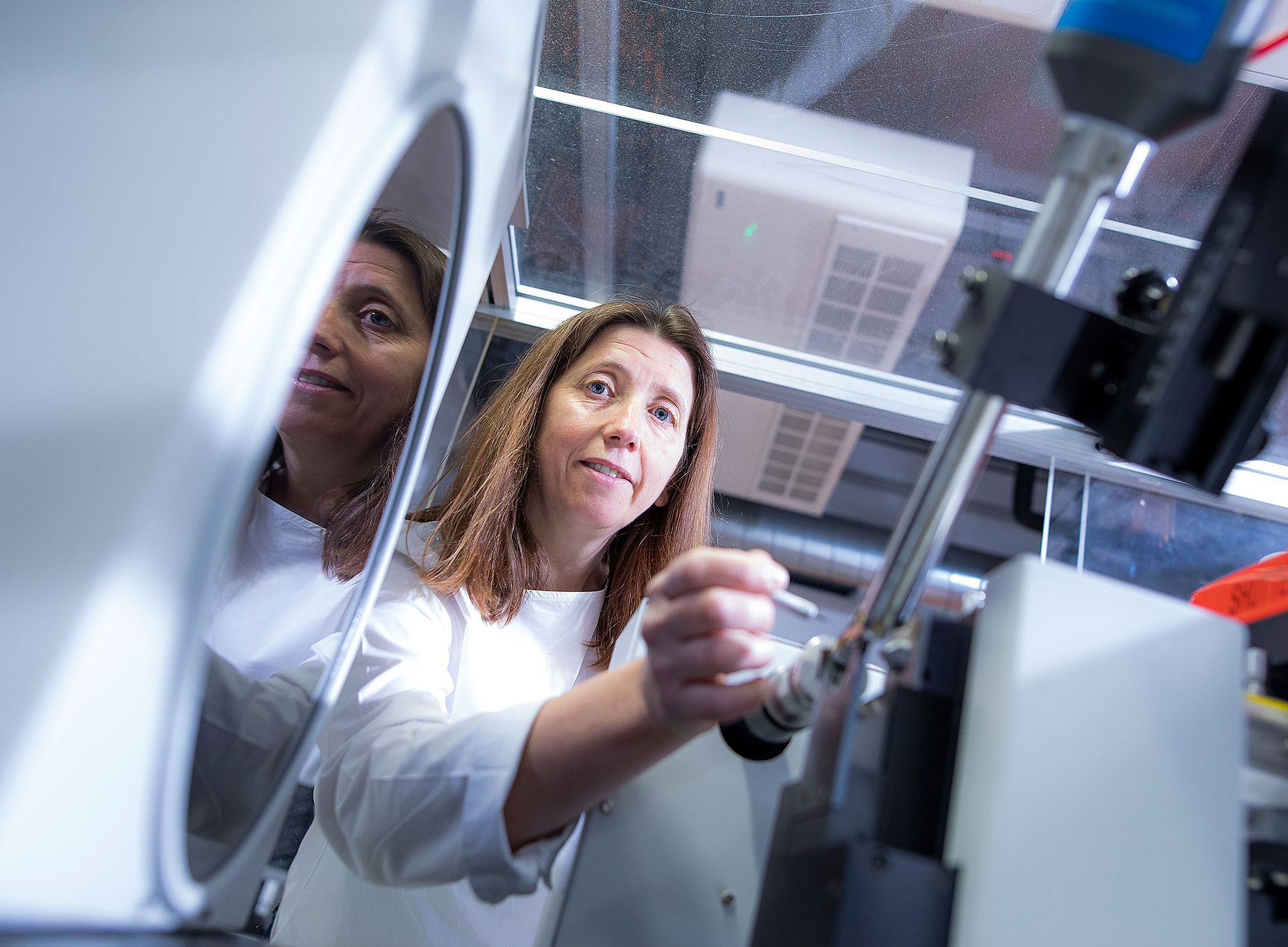ATGL massively increases its enzymatic activity by binding to CGI-58. This regulates and optimises the performance of this essential cellular machinery for lipid catabolism. The molecular mechanisms that regulate this interaction have so far remained largely unexplained. "We have now identified specific amino acids on a surface region of ATGL that are essential for the efficient stimulation of its activity by the partner protein," explains Monika Oberer, research group leader at the Department of Molecular Biosciences at the University of Graz.
On the way to this finding, the scientists combined biochemical and molecular biological methods with modern AI-based modeling techniques. "When analysing ATGL-like proteins in various organisms, we found amino acids that are always present in mammals, not so in plants and fungi," reports Oberer. From these, the team then identified those involved in the stimulation of ATGL by CGI-58 by using experimental laboratory technologies and complex 3D modeling. "Our study provides a comprehensive functional model for the interaction of partner proteins in lipid metabolism. This significantly improves our understanding of these central cellular processes," says the researcher, emphasising the significance of the publication.
Monika Oberer's research group is part of BioHealth, a Field of Excellence at the University of Graz.
Publication
Unmasking Crucial Residues in Adipose Triglyceride Lipase for Co-Activation with Comparative Gene Identification-58
Natalia Kulminskaya, Carlos Francisco Rodriguez Gamez, Peter Hofer, Ines Kathrin Cerk, Noopur Dubey, Roland Viertlmayr, Theo Sagmeister, Tea Pavkov-Keller, Rudolf Zechner, Monika Oberer
Journal of Lipid Research, DOI: 10.1016/j.jlr.2023.100491
